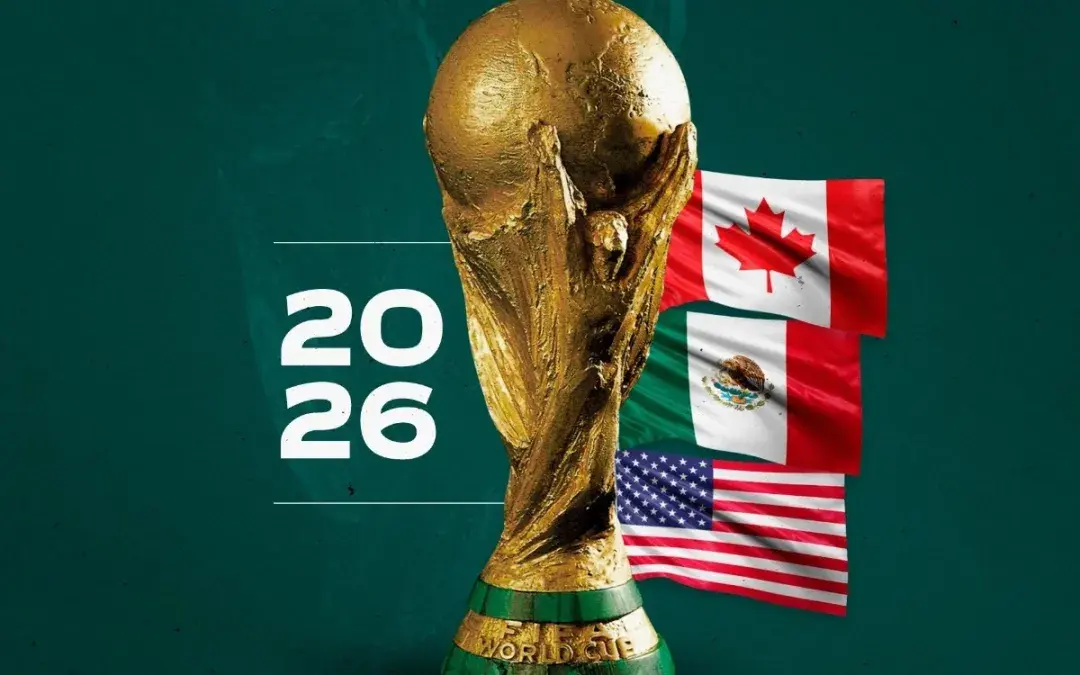As excitement for the FIFA World Cup 2026 grows day by day, so does the interest of cybercriminals looking to exploit fans' enthusiasm. To make it easier for fans to get involved, FIFA has launched two official links with key information about the event, which will take place in the United States, Mexico, and Canada. But beware: although these sites are legitimate, they could also be imitated to carry out scams.
In this article, we’ll show you how to identify FIFA’s authentic links, what risks may arise, and how to protect yourself from potential threats such as phishing, malicious redirects, or insecure forms.

What Are the Official Links for the 2026 World Cup?
1. Fan Registration: auth.fifa.com (official registration link)
This link allows fans to register for official updates about the 2026 World Cup. It is part of FIFA's authentication system and uses the secure OAuth 2.0 protocol, widely adopted to safeguard login processes.
2. Hospitality Packages: hospitality.fifa.com (premium packages and VIP experiences)
This site offers information about hospitality packages for those seeking a more exclusive experience during the tournament, including details on services, locations, and pricing. Both links belong to legitimate FIFA domains, but caution is advised, as attackers often create convincing fake copies to deceive users.
Why Are There Risks if the Sites Are Legitimate?
Although the official sites are secure by design, they can still present technical vulnerabilities or be used as models for phishing attacks through spoofed links. Here's how:
What's Behind the Registration Link (auth.fifa.com)?
This link uses typical OAuth 2.0 protocol parameters such as:
-
response_type=code -
scope=openid -
redirect_uri=https://www.fifa.com
These are intended to manage secure sessions and safely redirect users. However, if not properly validated, they can be exploited maliciously.
Potential Risks:
-
Open Redirect: If the
redirect_uriparameter isn’t strictly validated, attackers could redirect users to a fake site after login. -
CSRF (Cross-Site Request Forgery): Missing the
stateparameter could leave sessions vulnerable to forged requests. -
Phishing via Fake Domains: Sites like
auth-fifa.comorfifa-login.commay look legitimate but are traps to steal your credentials. -
Data Leaks: If the
client_idparameter is improperly exposed, third parties could exploit it to forge requests.
How Safe Is the Hospitality Site (hospitality.fifa.com)?
This subdomain is dedicated to selling exclusive packages for the World Cup. While legitimate, it has certain aspects that warrant attention.
Possible Vulnerabilities:
-
Phishing: As with the registration site, cloned versions with similar URLs may appear.
-
Configuration Errors: Poorly protected servers can be vulnerable to SQL injection, XSS, or other attacks.
-
Unprotected Forms: Any form collecting user data should be safeguarded against CSRF attacks or malicious scripts.
-
Insecure Dynamic Scripts: Tools like price calculators or interactive assistants can become malware entry points if not properly developed.
Read more: Scam Designs: How Hackers Use UX/UI to Trick You
Tips for Safe Browsing
If you're going to interact with websites related to the 2026 World Cup—whether for information or ticket purchases—keep these best practices in mind to protect yourself:
What to Do:
-
Verify that the domain is exactly fifa.com, auth.fifa.com, or hospitality.fifa.com.
-
Make sure the URL begins with https://, not http://.
-
Always access links from FIFA’s official website or verified press releases.
-
Use strong, unique passwords. If possible, enable two-factor authentication (2FA).
-
Keep your browser and operating system up to date.
-
Fill out forms only on secure networks—never on public Wi-Fi.
What to Avoid:
-
Don’t click on links sent via email, WhatsApp, or SMS unless they come from trusted sources.
-
Don’t share personal, banking, or login information on forms that aren’t on verified sites.
-
Don’t download attachments from emails claiming to be from FIFA unless you were expecting them.
Why Is This So Important for Mexico?
As one of the host countries for the World Cup, Mexico is a prime target for phishing campaigns and digital fraud related to the event.
Concerning Statistics:
-
In the first half of 2025, Mexico faced 83 million cyberattacks per day.
-
In 2024, 62.7% of Mexican consumers were victims of phishing.
-
80.2% of fraud cases in the country involved phone calls, SMS, or fake websites.
With a massive event like the World Cup, these numbers are likely to rise.
Read more: Ransomware in Mexico: Cyberattacks Cause Major IT Sector Losses
How Could You Be Tricked?
Cybercriminals are getting more creative every day. Here are some common traps:
-
Fake emails pretending to be from FIFA, promising free tickets or early access.
-
SMS or WhatsApp messages with shortened links that lead to fraudulent sites.
-
Fake websites that perfectly mimic the official portal to steal your banking information.
-
Social media ads that redirect to unverified pages with fake promotions.
In Summary: How to Enjoy the World Cup Without Falling for Scams
The FIFA World Cup 2026 will be a once-in-a-lifetime celebration, and as a fan, you have every right to get excited, sign up, and plan your trip or streaming sessions. But with that excitement comes the responsibility to stay vigilant against digital fraud.
What Should You Remember?
-
Use only FIFA’s official links.
-
Check the domain and the security lock in your browser.
-
Never share personal information on suspicious sites.
-
Maintain good digital hygiene: strong passwords, updated antivirus, and common sense.
With caution and the right information, you can enjoy the thrill of the 2026 World Cup without worrying about falling victim to cyberattacks.

